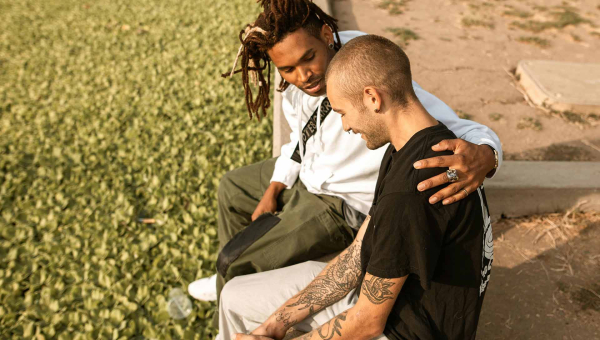So far in this series, you’ve been introduced to DBT and trauma. Now let’s connect the dots and explain why trauma-focused DBT is a great starting point for trauma work. In the previous section, you learned how trauma affects the nervous system. This explanation is called the polyvagal theory, and it provides the theoretical basis for trauma-focused DBT.

To this day, many medical professionals do not fully understand or appreciate the physical impact of trauma on the nervous system (and therefore, the entire body). Since the nervous system interacts with all other body systems, many possible physical symptoms can result. These symptoms will be different for everyone, since we all have our own unique bodies with our own unique nervous systems.

Trauma affects every part of the body and every part of the brain. That’s a lot of turf. There is still much that even highly trained professionals do not understand about how trauma affects a person, both physically and emotionally. What follows is an introduction to the causes and effects of trauma.

Dialectical behavior therapy (DBT) was developed in the 1970s by Dr. Marsha Linehan to treat symptoms of what we call borderline personality disorder. A borderline personality is characterized by a fear of abandonment; chaotic relationships; chronic feelings of emptiness; reckless, impulsive, and self-injurious behaviors; and a constant roller coaster of emotions, including fits of rage.

So far you have been on quite the journey! Earlier, we learned that trauma has a way of throwing everything off balance, including our thoughts, our feelings, our behaviors, and our relationships. Since trauma by definition represents an extreme situation, trauma sends each of these areas of our lives into extreme positions.

So far, we have learned a lot of information about how to improve relationships. For example, you have learned to assert, to appreciate, and to apologize with the Adult Voice. You have also learned to listen, understand, and validate; to appear confident with poise, interest, and expressiveness; and to stay calm, aware, and respectful (even when the other person is anything but).

Regardless of how you are wired as a person, and regardless of how someone else is wired as a person, there are three A’s which are indispensable for human interactions: Assert, Appreciate, Apologize. If you can get these three concepts down, you are well on your way to more effective communication…not to mention healthier relationships!

In earlier blog posts, you learned that trauma has a way of throwing us off balance. Just about everything can get thrown off balance by trauma: our thoughts, our feelings, and our actions. And since trauma by definition represents an extreme situation, trauma tends to force our thoughts, feelings, and actions into extreme positions as well.

Would you ever plant a garden in the spring, and just abandon it till the end of the summer? Even if you planted the right seeds, what kind of outcome would you expect if you did absolutely nothing to maintain the garden? Well, the same concept applies to your emotions. Now that your emotional garden has been planted, we need to fertilize it! In the final lesson of your garden of emotions, you will learn the ABC’s of maintaining emotional stability (Linehan, 2015):

When it comes to the game of life, do you have trouble shooting? Or have you learned to shoot your troubles? Now I am not a violent person, but please work with my analogy: If we are going to protect our garden of emotions, we may have to shoot some predators! And life is full of them: work, deadlines, appointments, bills, illness…you get the point.

Did you ever notice that reacting to your emotions can actually make them worse? For example, let’s suppose that you are really ticked off. And when you get ticked off, you clench your fists and raise your voice. Have you noticed that the more you clench your fists and raise your voice, the angrier you get? Now let’s suppose you are feeling really sad, and you just want to sleep, isolate—and crawl in your bed and never come out.







